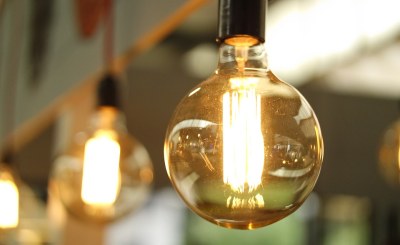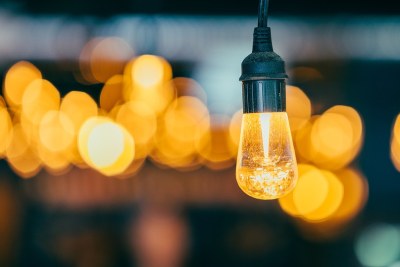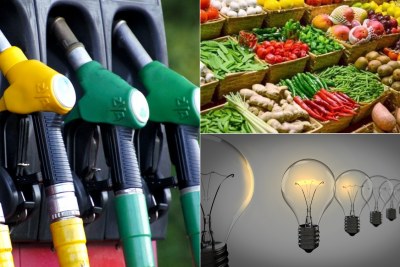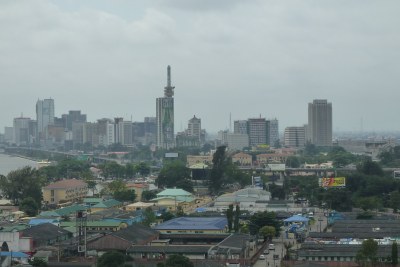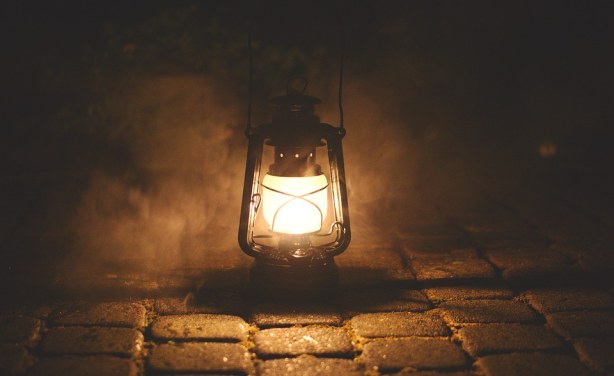-
Nigeria: What Country's Poor Power Supply Really Costs
The Conversation Africa, 22 September 2020
Nigeria faces the triple challenge of providing reliable power supply, reducing greenhouse gas emissions, and keeping energy affordable to consumers. Read more »
-
Nigeria: The Law and Economics of Electricity and Petroleum Prices Increase
This Day, 22 September 2020
This article by Dr Sam Amadi thoroughly examines the recent increase in electricity tariffs by the Federal Government, and the removal of the fuel subsidy which has also resulted… Read more »
-
Nigeria: Lagos Moves Towards Affordable Electricity
Vanguard, 23 September 2020
As Nigeria literally gropes in the dark due to poor electricity supply, the Lagos State government may have taken a step to affordable electricity. Read more »
-
Nigeria: NLC Announces Nationwide Protest Over Petrol, Electricity Price Increase
Premium Times, 22 September 2020
Nigeria Labour Congress (NLC) has finalised its plan to stage a nationwide rally on September 28 to protest the increase in the prices of petrol and electricity tariff. Read more »
-
Nigeria: Nigeria's Metering Initiative Suffers Major Setback
Leadership, 22 September 2020
There are indications that the massive metering directive announced by the federal government to eliminate estimated billing by Electricity Distribution Companies (DisCos) after it… Read more »
-
Nigeria: Again, Govt Justifies Choice of Siemens for 25,000mw Grid Expansion
This Day, 8 September 2020
The federal government yesterday defended the choice of German firm, Siemens AG, for its 25,000 megawatts grid expansion, saying the German firm was chosen to expand Nigeria's… Read more »
-
Nigeria: Govt Secures $6.15bn for Nigeria's Power Infrastructure
Vanguard, 8 September 2020
The Federal Government has said that it has secured $6.15 billion for infrastructural development in the power sector. Read more »
What Nigeria's Poor Power Supply Really Costs
Nigeria faces the triple challenge of providing reliable power supply, reducing greenhouse gas emissions, and keeping energy affordable to consumers. The availability of electricity has worsened over the years. The country has been unable to meet demand because of its policies, regulations and management of operations. Its failure to provide adequate and reliable energy is well documented, specifically its impact on the economy. Nigeria needs to diversify its economy beyond oil and gas revenues, because that market is volatile. But if the energy-hungry private sector invested more in self-generation to make this possible, pollution would rise. An increase in self-generation would increase greenhouse gas emissions, writes Samuel Ayokunle Olówósejéjé for The Conversation.
InFocus
-
Nigeria's efforts to diversify its economy has seen the country produce its first locally made gold bar which was handed to President Muhammadu Buhari, signifying the beginning of ... Read more »
-
The government has entered into an agreement with a German company, Siemens, to boost power supply in Nigeria. Nigeria has struggled to supply electricity throughout the country ... Read more »
-
Nigerians have slammed President Muhammadu Buhari following increases in the price of basics, describing the move as "cruel and callous." The Nigeria Labour Congress has ... Read more »
-
As the country prepares to celebrate its 60th independence anniversary, President Muhammadu Buhari has described Nigeria as the "most prosperous black nation" in the world and the ... Read more »

